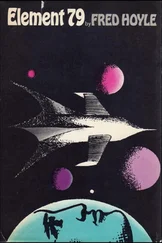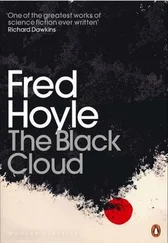Reinhart stopped overnight in Aberdeen, where a Scottish Universities seminar was taking place. The seminar was an excuse; he did not want to spend the rest of the journey face to face with the politely condescending company from London. His one consolation was that he met an old friend, Madeleine Dawnay, professor of chemistry at Edinburgh. She was perhaps the best biochemist in the country, immensely capable and reassuring and with all the charm, her students said, of a test-tube-full of dried skin. They talked for a long time, and then he went off to his hotel bedroom and worried.
In the morning he had a telegram from Thorness: FULL HOUSE. ACES ON KINGS. COME QUICK. FLEMING. He cancelled his plane reservation to London, bought a new railway ticket and set off north-west again, taking Dawnay with him.
“What does it mean?” she asked.
“I hope to heaven it means something’s happened. The damn thing cost several million and I thought last night we were going to be the laughing-stock of Whitehall.”
He did not know quite why he was taking her. Possibly to give himself some moral support.
When he telephoned the camp from Thorness station to ask for a car and an extra pass, his call was put straight through to Quadring’s office.
“Damn scientists,” said Quadring to his orderly. “They’re in and out as if it were a fairground.”
He took the pass the orderly had written and walked down the corridor to Geers’s office. In the ordinary way he was a pleasant enough character, but Judy had been in to report the affair of the shooting and he was on edge and tetchy.
“I wonder if you’d sign this, sir?” He put the pass down on Geers’s desk.
“Who is it?”
“Someone Professor Reinhart’s bringing in.”
“Have you checked him?”
“It’s a ‘her’ actually.”
“What’s her name?” Geers squinted down at the card through his bifocals.
“Professor Dawnay.”
“Dawnay! Madeleine Dawnay?” He looked with new interest. “You don’t have to worry about her. I was at Manchester with her, before she moved on.”
He smiled reminiscently as he signed the pass. Quadring shuffled uneasily.
“It’s not easy keeping track of these Ministry of Science bods.”
“As long as they stick to their own building.” Geers handed the pass back.
“They don’t.”
“Who doesn’t?”
“Bridger for one. He goes out in his boat a lot to the island.”
“He’s a bird-watcher.”
“We think it’s something else. My own guess is he takes papers with him.”
“Papers?” Geers looked up sharply with a glint of spectacles. “Have you any proof?”
“No.”
“Well then—”
“Would it be possible to have him searched at the landing-jetty?”
“Suppose he hadn’t got anything?”
“I’d be surprised.”
“And we’d look pretty foolish, wouldn’t we?” Geers took off his glasses and stared discomfortingly at the major. “And if he was up to something we’d put him on his guard.”
“He is up to something.”
“Then get some facts to go on.”
“I don’t see how I can.”
“You’re responsible for the security of this establishment.”
“Yes, sir.”
Geers gave it his full attention for a moment.
“What about Miss Adamson?”
Quadring told him.
“Nothing since?”
“Not that we can see, sir.”
“Hm.” He closed the legs of his spectacles with a snap that dismissed the matter. “If you’re going over to the computer building you might give Professor Dawnay her pass.”
“I wasn’t.”
“Then send someone. And give her my regards. In fact, if they’re through at a reasonable hour they might look in for a sherry.”
“Very good, sir.” Quadring backed gingerly away from the desk.
“And Fleming, I suppose, if he’s with them.”
“Yes, sir.”
He got as far as the door. Geers was looking wistfully at the ceiling, thinking of Madeleine Dawnay.
“I wish we did more primary research ourselves. One gets tired of development work.”
Quadring made his escape.
In the end it was Judy who took the pass. Dawnay was in the computer control-room, being shown round by Reinhart and Bridger while Christine tried to raise Fleming on the camp phone. Judy handed over the pass and was introduced.
“Public Relations? Well, I’m glad they let girls do something,” said Dawnay in a brisk, male voice. She looked hard but not unkindly at everyone. Reinhart fluttered a little; he seemed unusually nervous.
“What did John want?”
“I don’t know,” Judy told him. “At least, I don’t quite follow it.”
“He sent me a telegram.”
After a minute Fleming hurried in.
“Ah, there you are.”
Reinhart pounced on him.
“What’s happened?”
“Are we alone?” Fleming asked, looking coolly at Dawnay.
Reinhart introduced them irritably and fidgeted from one tiny foot to the other while she quizzed Fleming about the computer.
“Madeleine’s fully in the picture.”
“She’s lucky. I wish I were.” Fleming fished from his pocket a folded sheet of paper and handed it to the Professor.
“What’s this?” Reinhart opened it.
Fleming watched him with amusement, like a small boy playing a trick on a grown-up. The paper bore several lines of typed figures.
“When did it print this?” Reinhart asked.
“Last night, after you’d all gone. Judy and I were here.”
“You didn’t tell me.” Bridger edged in reproachfully.
“You’d gone off.”
Reinhart frowned at the figures. “It means something to you?”
“Don’t you recognise it?”
“Can’t say I do.”
“Isn’t it the relative spacings of the energy levels in the hydrogen atom?”
“Is it?” Reinhart handed the paper to Dawnay.
“You mean,” Bridger asked, “it suddenly came out with that?”
“Yes. It could be.” Dawnay read slowly through the figures. “They look like the relative frequencies. What an extraordinary thing.”
“The whole business is a little out of the ordinary,” said Fleming.
Dawnay read through the figures again, and nodded.
“I don’t see the point.” Judy wondered if she was being unusually obtuse.
“It looks as if someone out there,” Dawnay pointed up to the sky, “has gone to a lot of trouble to tell us what we already know about hydrogen.”
“If that’s really all.” Judy looked at Fleming, who said nothing.
Madeleine Dawnay turned to Reinhart. “Bit of a disappointment.”
“I’m not disappointed,” Fleming said quietly. “It’s a starting point. The thing is, do we want to go on?”
“How can you go on?” Dawnay asked.
“Well, hydrogen is the common element of the universe. Yes? So this is a piece of very simple universal information. If we don’t recognise it, there’s no point in the machine continuing. If we do, then he can proceed to the next question.”
“What next question?”
“We don’t know yet. But this, I bet you, is the first move in a long, long game of questions and answers.” He took the paper from her and handed it to Christine. “Push this into the intake.”
“Really?” Christine looked from him to Reinhart.
“Really.”
Reinhart remained silent, but something had happened to him; he was no longer dejected and his eyes twinkled and were alert. The rest of them stood in a silent thoughtful group while Christine sat down to the input teletype and Bridger adjusted settings on the control desk.
“Now,” he said. He was even quieter than Fleming, and Judy could not decide whether he was jealous or apprehensive or merely trying, like the others, to work it out.
Читать дальше












